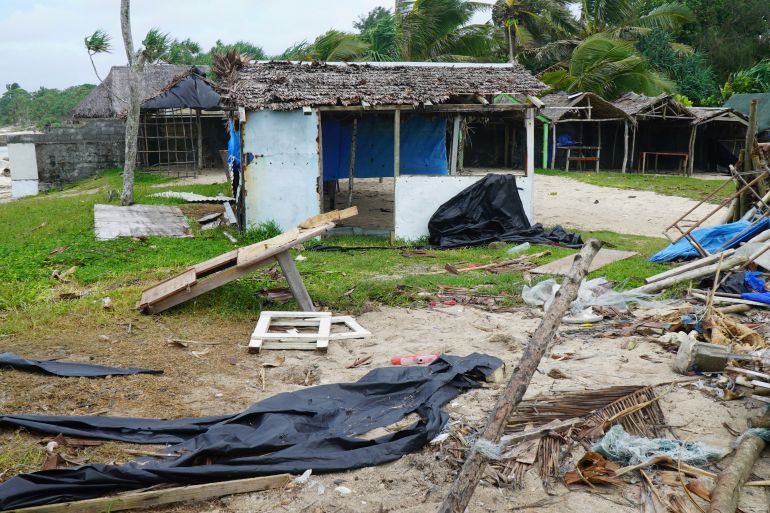‘We are in danger now’: Vanuatu declares climate emergency
Prime Minister Bob Loughman says using the term ’emergency’ is a way of signalling the need for ‘responsible nations to match action to the size and urgency of the crisis’.

Vanuatu’s parliament has declared a climate emergency with the low-lying island nation’s prime minister flagging a $1.2bn cost to cushion global warming’s impacts on his tiny Pacific country.
Speaking to parliament in Port Vila, Prime Minister Bob Loughman said rising sea levels and severe weather were already disproportionately affecting the Pacific – highlighting two devastating tropical cyclones and a hard-hitting drought in the last decade.
Keep reading
list of 4 items‘Delay means death’: New climate report issues stark warnings
Climate change will fuel greater displacement
World ‘sleepwalking’ to climate catastrophe: UN chief
“The Earth is already too hot and unsafe,” Loughman said. “We are in danger now, not just in the future.”
The parliament unanimously supported the motion on Friday, and it follows similar declarations by dozens of other countries, including the United Kingdom, Canada and South Pacific neighbour Fiji.
“Vanuatu’s responsibility is to push responsible nations to match action to the size and urgency of the crisis,” said Loughman. “The use of the term emergency is a way of signalling the need to go beyond reform as usual.”
The declaration was part of a “climate diplomacy push” in the run-up to a United Nations vote on his government’s application to have the International Court of Justice move to protect vulnerable nations from climate change.
Last year, the nation of about 300,000 said it would seek a legal opinion from one of the world’s highest judicial authorities to weigh in on the climate crisis.
Though a legal opinion by the court would not be binding, Vanuatu hopes it would shape international law for generations to come on the damage, loss and human rights implications of climate change.
He also outlined the country’s enhanced commitment to the Paris agreement to be reached by 2030 at the cost of at least $1.2bn – in a draft plan primarily focused on adapting to climate change, mitigating its effects, and covering damage.
Most of the funding would need to be from donor countries, he said.
This week, Australia’s new foreign minister, Penny Wong, used a trip to Fiji to promise Pacific nations a reset on climate policy after a “lost decade” under conservative rule.
“We will end the climate wars in our country. This is a different Australian government and a different Australia. And we will stand shoulder to shoulder with you, our Pacific family, in response to this crisis,” Wong told a Pacific Island Forum event.
In April 2020, Tropical Cyclone Harold hit Vanuatu and demolished tourist resorts in another South Pacific island nation of Tonga, extending a weeklong trail of destruction across four island nations, with more than two dozen people killed.
In 2015, about 64 percent of the country’s gross domestic product (GDP) was wiped out in a single cyclone, causing economic losses of nearly $450m.
In 2019, Vanuatu considered legal action against big hydrocarbon polluters thousands of kilometres away amid the effects of rising sea temperatures, intense cyclones, and erratic weather patterns.